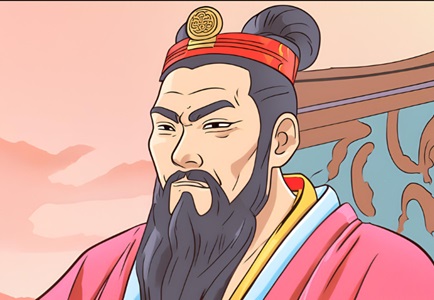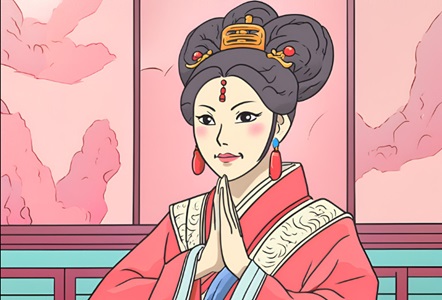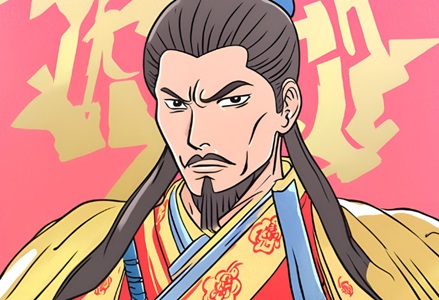Title of Biography in Chinese, Pinyin: 刘邦传 (Liú Bāng Zhuàn).
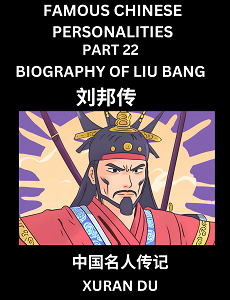
Title of Biography in English: The Biography of Liu Bang.
Check out books on my Amazon and Barnes & Noble homepages as well as the following pages to learn Biographies of famous Chinese personalities-
- Part 1 – Chinese Biography Book Series for Beginners
- Part 2 – Chinese Biography Book Series for Beginners
- Part 3 – Chinese Biography Book Series for Beginners
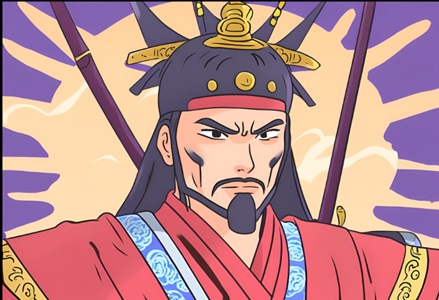
The Biography of Liu Bang in English (英文传记)
Liu Bang: The Founding Emperor of the Han Dynasty

Liu Bang, also known as Ji, was born in the late Qin Dynasty (around 256 BC – 195 BC) and is a renowned politician and military strategist in Chinese history, known as the founding emperor of the Han Dynasty.
Liu Bang was born into a peasant family and did not have a wealthy upbringing. However, he was ambitious and had a broad-minded personality. In the late Qin Dynasty, when the country was in turmoil, Liu Bang seized the opportunity to join the uprising against the Qin Dynasty. With his exceptional wisdom and courage, he gradually emerged as a leader in the rebel army.
During the process of leading the rebel army to overthrow the Qin Dynasty, Liu Bang fully demonstrated his military talent and political wisdom. He was adept at using people and able to unite various forces to form a powerful alliance. At the same time, he also attached great importance to the will of the people, knowing that he who gains the support of the people gains the country. Therefore, he implemented a series of policies that benefited the people, winning widespread support from the general populace.
After years of arduous battles, Liu Bang finally overthrew the Qin Dynasty and established the Han Dynasty. After ascending to the throne, he continued to implement benevolent policies, strengthen centralization, and consolidate the rule of the Han Dynasty. He also emphasized cultural education, promoting Confucianism, which led to the prosperity of Han culture.

However, during his reign, Liu Bang also faced many challenges. He had to deal with threats from external forces as well as internal power struggles. Nonetheless, he remained clear-headed and took decisive measures to maintain the stability and prosperity of the Han Dynasty.
The life of Liu Bang is filled with legendary color, and his wisdom, courage, and benevolent governance have left valuable wealth for later generations.
Learn Biography Of Liu Bang in Chinese (中文传记)

刘邦,字季,生于秦朝末年(约公元前256年-前195年),是中国历史上著名的政治家、军事家,也是汉朝的开国皇帝。
刘邦出身农家,早年生活并不富裕,但他胸怀壮志,性格豁达。秦朝末年,天下大乱,刘邦抓住时机,投身于反抗秦朝的起义中。他凭借过人的智慧和勇气,逐渐在起义军中崭露头角,最终成为领导者。
在领导起义军推翻秦朝的过程中,刘邦充分展现了他的军事才能和政治智慧。他善于用人,能够团结各种力量,形成强大的联盟。同时,他也非常重视民心,深知得民心者得天下,因此他推行了一系列惠民政策,赢得了广大人民的支持。
经过数年的艰苦征战,刘邦终于推翻了秦朝,建立了汉朝。他登基为帝后,继续推行仁政,加强中央集权,巩固了汉朝的统治。他还注重文化教育,提倡儒学,使得汉朝的文化繁荣起来。
然而,刘邦在位期间也面临了诸多挑战。他不仅要应对外部势力的威胁,还要处理内部的权力斗争。尽管如此,他依然能够保持清醒的头脑,采取果断的措施,维护了汉朝的稳定和繁荣。
刘邦的一生充满了传奇色彩,他的智慧、勇气和仁政为后世留下了宝贵的财富。
Liu Bang Biography Keywords- English, Chinese & Pinyin (关键词)

- 刘邦(Liú Bāng):Liu Bang: The founding emperor of the Han Dynasty.
- 开国皇帝(kāi guó huáng dì):Founding Emperor: The first emperor of a dynasty.
- 军事才能(jūn shì cái néng):Military Talent: Skills and abilities in military strategy and leadership.
- 政治智慧(zhèng zhì zhì huì):Political Wisdom: Insight and judiciousness in political affairs.
- 惠民政策(huì mín zhèng cè):Policies Benefiting the People: Policies that improve the welfare of the general populace.
- 仁政(rén zhèng):Benevolent Governance: A form of governance that emphasizes kindness, fairness, and compassion.
- 权力斗争(quán lì dòu zhēng):Power Struggle: Competition or conflict for political power or authority.
Pinyin of Liu Bang Biography (刘邦传记的拼音)
Liúbāng, zì jì, shēng yú qín cháo mònián (yuē gōngyuán qián 256 nián-qián 195 nián), shì zhōngguó lìshǐ shàng zhùmíng de zhèngzhì jiā, jūnshì jiā, yěshì hàn cháo de kāiguó huángdì.

Liúbāng chūshēn nóngjiā, zǎonián shēnghuó bìng bù fùyù, dàn tā xiōnghuái zhuàngzhì, xìnggé huòdá. Qín cháo mònián, tiānxià dàluàn, liúbāng zhuā zhù shíjī, tóushēn yú fǎnkàng qín cháo de qǐyì zhōng. Tā píngjièguò rén de zhìhuì hé yǒngqì, zhújiàn zài qǐyì jūn zhōng zhǎnlùtóujiǎo, zuìzhōng chéngwéi lǐngdǎo zhě.
Zài lǐngdǎo qǐyì jūn tuīfān qín cháo de guòchéng zhōng, liúbāng chōngfèn zhǎnxiànle tā de jūnshì cáinéng hé zhèngzhì zhìhuì. Tā shànyú yòngrén, nénggòu tuánjié gè zhǒng lìliàng, xíngchéng qiángdà de liánméng. Tóngshí, tā yě fēicháng zhòngshì mínxīn, shēn zhī dé mínxīn zhě dé tiānxià, yīncǐ tā tuīxíngle yī xìliè huì mín zhèngcè, yíngdéle guǎngdà rénmín de zhīchí.
Jīngguò shù nián de jiānkǔ zhēngzhàn, liúbāng zhōngyú tuīfānle qín cháo, jiànlìle hàn cháo. Tā dēngjī wèi dì hòu, jìxù tuīxíng rénzhèng, jiāqiáng zhōngyāng jíquán, gǒnggùle hàn cháo de tǒngzhì. Tā hái zhù chóng wénhuà jiàoyù, tíchàng rúxué, shǐdé hàn cháo de wénhuà fánróng qǐlái.
Rán’ér, liúbāng zài wèi qíjiān yě miànlínliǎo zhūduō tiǎozhàn. Tā bùjǐn yào yìngduì wàibù shìlì de wēixié, hái yào chǔlǐ nèibù de quánlì dòuzhēng. Jǐnguǎn rúcǐ, tā yīrán nénggòu bǎochí qīngxǐng de tóunǎo, cǎiqǔ guǒduàn de cuòshī, wéihùle hàn cháo de wěndìng hé fánróng.

Liúbāng de yīshēng chōngmǎnle chuánqí sècǎi, tā de zhìhuì, yǒngqì hé rénzhèng wèi hòushì liú xiàle bǎoguì de cáifù.
